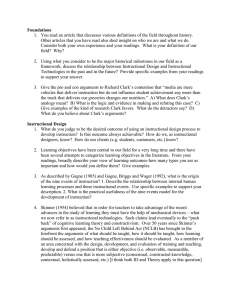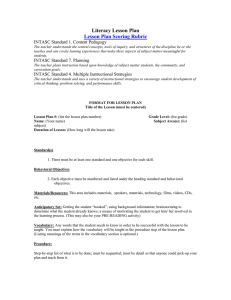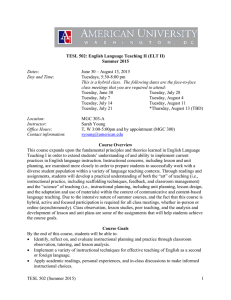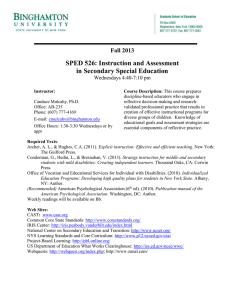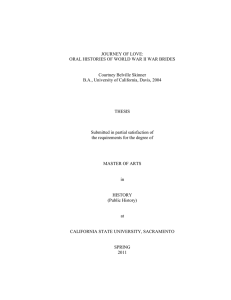Qualify Exam Question 2008
advertisement
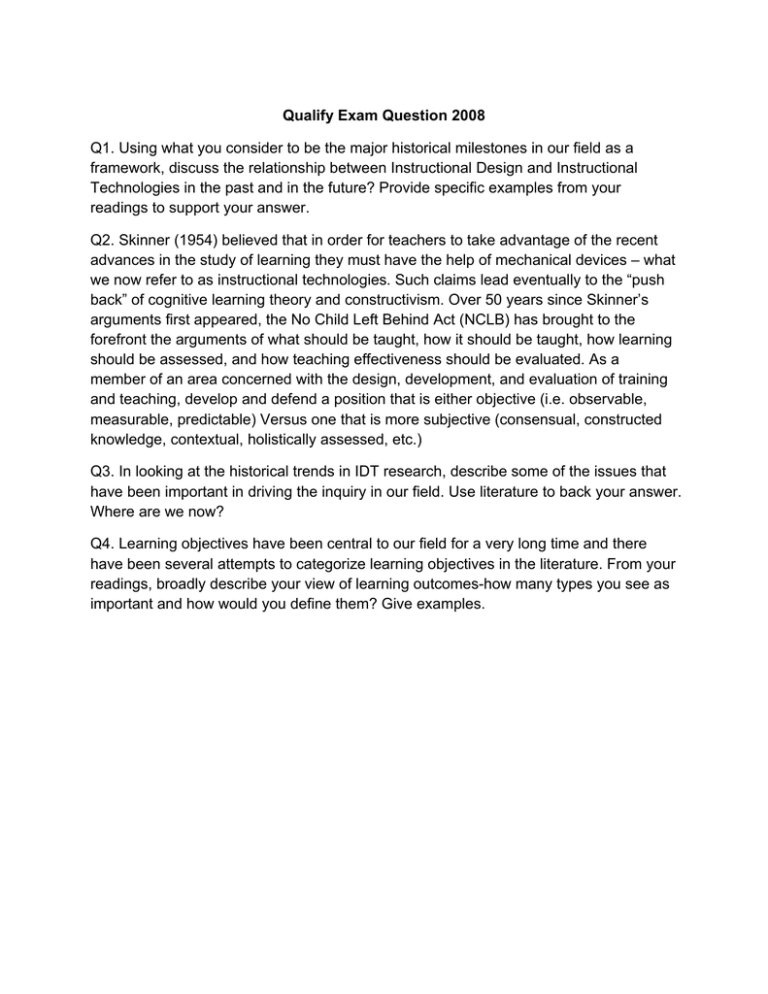
Qualify Exam Question 2008 Q1. Using what you consider to be the major historical milestones in our field as a framework, discuss the relationship between Instructional Design and Instructional Technologies in the past and in the future? Provide specific examples from your readings to support your answer. Q2. Skinner (1954) believed that in order for teachers to take advantage of the recent advances in the study of learning they must have the help of mechanical devices – what we now refer to as instructional technologies. Such claims lead eventually to the “push back” of cognitive learning theory and constructivism. Over 50 years since Skinner’s arguments first appeared, the No Child Left Behind Act (NCLB) has brought to the forefront the arguments of what should be taught, how it should be taught, how learning should be assessed, and how teaching effectiveness should be evaluated. As a member of an area concerned with the design, development, and evaluation of training and teaching, develop and defend a position that is either objective (i.e. observable, measurable, predictable) Versus one that is more subjective (consensual, constructed knowledge, contextual, holistically assessed, etc.) Q3. In looking at the historical trends in IDT research, describe some of the issues that have been important in driving the inquiry in our field. Use literature to back your answer. Where are we now? Q4. Learning objectives have been central to our field for a very long time and there have been several attempts to categorize learning objectives in the literature. From your readings, broadly describe your view of learning outcomes-how many types you see as important and how would you define them? Give examples.
